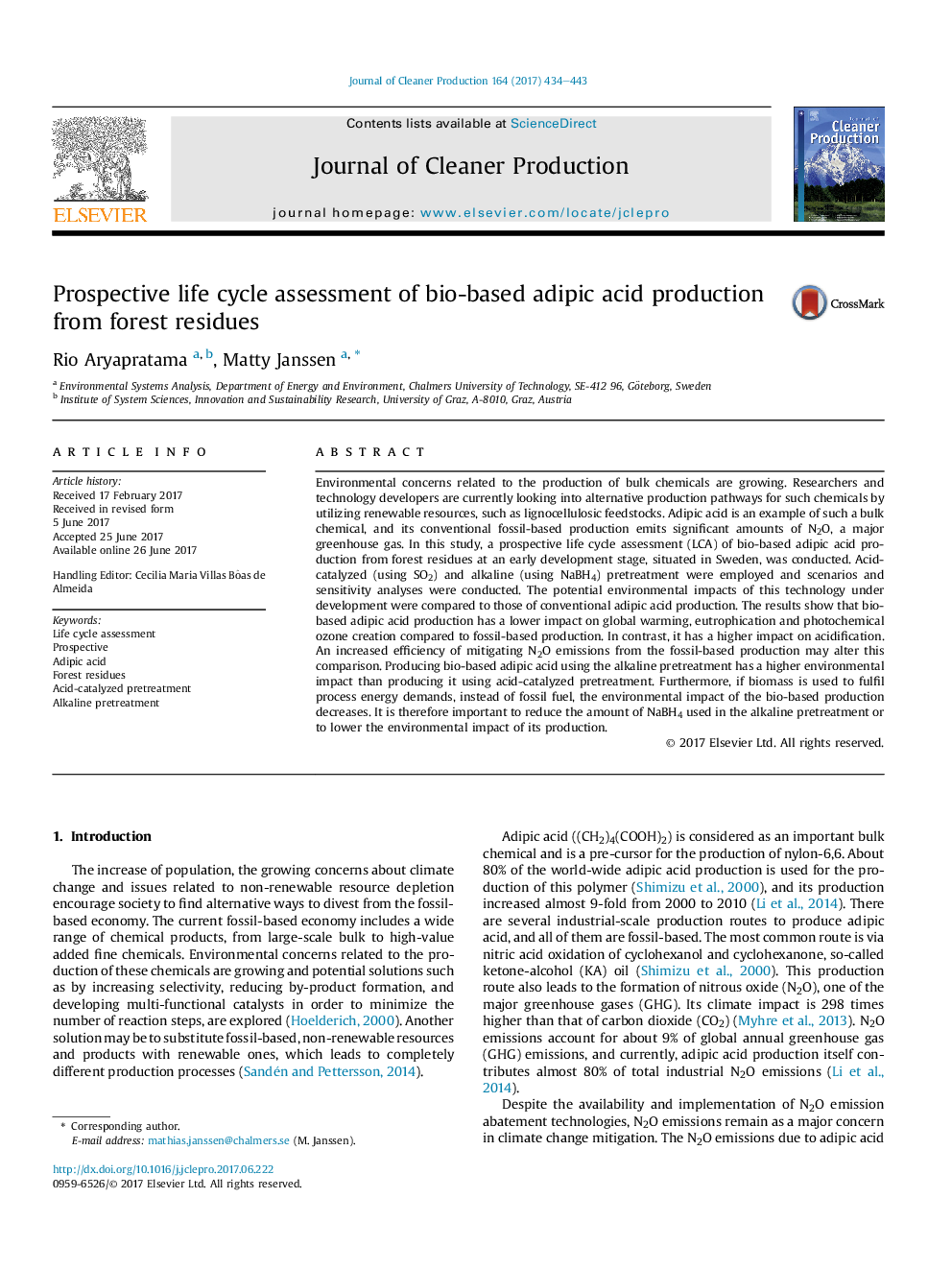| کد مقاله | کد نشریه | سال انتشار | مقاله انگلیسی | نسخه تمام متن |
|---|---|---|---|---|
| 5480457 | 1522090 | 2017 | 10 صفحه PDF | دانلود رایگان |
- A comparative LCA of bio- and fossil-based adipic acid production is conducted.
- Bio-adipic acid has lower environmental impacts in the majority of impact categories.
- Environmental burden shifting can be observed for acidification potential.
- Producing bio-based adipic acid through acid-catalyzed pretreatment is preferable.
- N2O removal efficiency may alter the comparison in favor of fossil-based production.
Environmental concerns related to the production of bulk chemicals are growing. Researchers and technology developers are currently looking into alternative production pathways for such chemicals by utilizing renewable resources, such as lignocellulosic feedstocks. Adipic acid is an example of such a bulk chemical, and its conventional fossil-based production emits significant amounts of N2O, a major greenhouse gas. In this study, a prospective life cycle assessment (LCA) of bio-based adipic acid production from forest residues at an early development stage, situated in Sweden, was conducted. Acid-catalyzed (using SO2) and alkaline (using NaBH4) pretreatment were employed and scenarios and sensitivity analyses were conducted. The potential environmental impacts of this technology under development were compared to those of conventional adipic acid production. The results show that bio-based adipic acid production has a lower impact on global warming, eutrophication and photochemical ozone creation compared to fossil-based production. In contrast, it has a higher impact on acidification. An increased efficiency of mitigating N2O emissions from the fossil-based production may alter this comparison. Producing bio-based adipic acid using the alkaline pretreatment has a higher environmental impact than producing it using acid-catalyzed pretreatment. Furthermore, if biomass is used to fulfil process energy demands, instead of fossil fuel, the environmental impact of the bio-based production decreases. It is therefore important to reduce the amount of NaBH4 used in the alkaline pretreatment or to lower the environmental impact of its production.
Journal: Journal of Cleaner Production - Volume 164, 15 October 2017, Pages 434-443
